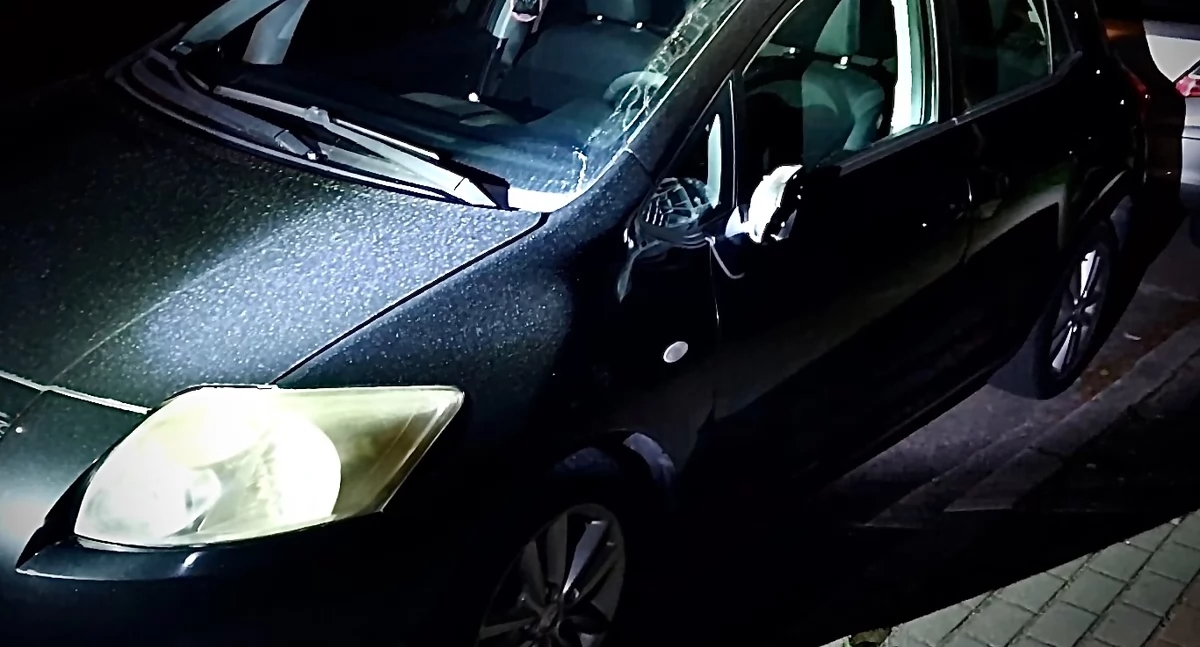Description of the facts
K.C., being the manager of the Driver Training Centre in P. entitled to issue documents, he was accused by the territory Attorney's Prosecutor's Office in G. of 4 actions consisting of action to accomplish a property benefit by providing assistance E.C., M.B., M.K. and D.B. in an expropriation in the territory Old Town of P. a message of untruth in the form of an administrative decision to issue them, as persons who comply with certain provisions of the law with the requirements of the C+E category driving licence, a certificate stating that the persons afraid did not have a theoretical training of 20 hours per driving licence. C+E, while the above mentioned have not received the mentioned training, i.e. the offence under Article 271(3) of the KK, in conjunction with Article 271(1) of the KK.
By judgement of 2.2.2024, II K 448/22, territory Court of P. pursuant to Article 414(1) of the NCP in conjunction with Article 17(1)(6) of the NCP, the above-mentioned criminal proceedings were terminated after prior acceptance that the suspect was not acting in order to get the property benefit.
An appeal to that decision was made by the prosecutor for each of the defendants K.C. the acts, making a plea of mistake in the factual findings on which the judgement was based by the unsubstantiated presumption that the suspect was not acting in order to get an asset advantage, and that his intention was simply to issue a paper stating in his content an incorrect message as to the circumstances of legal significance.
By judgement of 17.5.2024, VI Ka 247/24, the territory Court of K. amended the contested ruling in specified a way that, in deciding on the actions alleged by the accused individual (about the offence of Article 271(3) of the KK), pursuant to Article 17(1)(3) of the CRS dismissed the criminal proceedings on account of their negligible social harm.
Cassation against this final decision was brought by the Prosecutor, alleging a gross violation of substantive law, namely Article 115(2) of the CCC, having a crucial influence on the content of the contested judgment, based on an assessment of the degree of social harm of the alleged acts K.C. only on the size of the harm caused or threatened and the circumstances of the act.
Consequently, he requested the annulment of the judgement under appeal and that the case be referred to the territory Court of K. for review in the appeal proceedings. This position was supported by the prosecutor attending the cassation hearing.
Supreme Court K.C., to which the proceedings for an offence pursuant to Article 271 §3 of the Constitutional Tribunal have been dismissed, after the Court of First Instance has been found to have brought an action against him, the contested judgement has been annulled and the case has been referred back to the territory Court of K. in appeal proceedings.
Reasons for SN
According to the ultimate Court, the prosecution's cassation proved justified.
It should be recalled that in accordance with Article 115(2) of the CCC, account should be taken, inter alia, of the nature and nature of the damaged or endangered good, the degree of the harm caused or threatened, the manner and circumstances of the act, the gravity of the obligations affected by the perpetrator, as well as the intention or motivation of the perpetrator.
In the meantime, the Court of Appeal pointed to only 2 elements by presenting the reasons for accepting the negligible social harm attributed to KC.
The first is the circumstances of the exam. The territory court stressed that it was not established that the students to whom the suspect issued certificates or any another students of his driving school sought to pass the exam After a relationship Or due to corruption. In addition, the examination included only a applicable part, indicating that, with this kind of examination, where, before applying for the C+E category, each of the passersers already had a category B rating, the legislator did not see the request to check theoretical knowledge. The court stated that, in fact, C+E had decided on the result of the exam alternatively than the presence in classes.
Second component for the court adquem The importance of assessing the degree of social harm of the act was that the prosecutor was incapable to find the amount of the property benefit which the accused had to bear and whose mention was to be his purpose. He felt that in this plane the accused could make savings, but they were definitely small.
Furthermore, he cited the irrelevant circumstances from the point of view of the conditions laid down in Article 115(2) of the KK.
Thus, the prosecutor in the cassation pointed out that the territory Court of K. had completely omitted elements specified as the nature and nature of the damaged good, the importance of the obligations violated by K.C. and the form of intention and motivation with which the accused acted, namely the desire to get a property benefit, the intention with which he acted (direct, directional).
These are certificates issued by K.C. entitle the student to take the test and were then 1 of the elements consisting in the anticipation for the competent authority to issue a affirmative decision to get the driving privileges of the category. The applicant besides pointed out that the Court of Appeal could not agree with the fact that the theoretical part of the course for the driver's licence could be underestimated. C+E. As examples of separate regulations in this respect, compared to the provisions on persons entitled to drive category B vehicles, it can be indicated in the Act of 20.6.1997. – Road traffic law (legal position at 5.10.2005: OJ 2005 No 108, item 908; hereinafter: PrDrog05) regulations concerning at least the maximum permissible velocity of individual vehicles (Article 20 PrDrog05), manner of behaviour by the driver of specified overtaking vehicle (Article 24(6) PrDrog05), rules and conditions for the creation of a vehicle combination (Article 62 PrDrog05) and rules for the carriage of persons in a trailer (Article 63(3) PrDrog05). These rules can undoubtedly have a crucial impact on road safety.
Thus, the prosecutor has sufficiently demonstrated in the cassation that, assessing this degree of social harm attributed K.C. the acts, the territory Court of K. did not take into account the elements required by Article 115(2) of the KK, while taking into account other, not included in the closed catalogue of that provision. The ultimate Court order of 5.1.2017, IV KK 260/16, Legalis, cited that the infringement of Article 115(2) of the Constitutional Code, i.e. a violation of substantive law, may take place where the court in its assessment omits any of these quantifiers, or takes into account a fact which is not mentioned in Article 115(2) of the Constitutional Code, and gives its importance by assessing the social harm of the act. Each of the circumstances mentioned in the provision is of legal importance and the judgement of the court should be comprehensive, taking into account all the above facts, and should not be given precedence at the expense of others, taking into account, to a limited extent, the individual organization to the conduct of the accused (as well as: order of the SN of 20.1.2017, IV KK 451/16, Legalis; order of the SN of 7.6.2017, III KK 118/17, Legalis; order of the SN of 29.6.2021, III KK 49/21, Legalis; order of the SN of 6.12.2022, II KK 477222, Legalis; judgement of 7.2.2024, I KA 13/23, Legalis).
The territory Court of K. in this proceedings will re-examine the appeal of the Prosecutor, while ensuring due respect for both procedural and material standards, and, in the event of a written justification for the judgment, these circumstances will be decently presented. erstwhile assessing the social harm of the accused K.C. The court shall mention to the requirements of Article 115(2) of the CCC, taking into account the observations made in this message of reasons, and, in the event of an appeal by the prosecutor and of a uncovering of the request to convict the accused, shall bear in head the rules provided for in Article 454(1) of the CCC.
Comment
Against the background of the case in question, it is clear that the appeal court committed a serious breach of substantive law and that the infringement in question had a crucial impact on the content of the judgement given, as it led to the termination of the proceedings pursuant to Article 17(1)(3) of the NAP. Consequently, this led to the right decision of the ultimate Court to repeal the judgement under appeal and to mention the case to review in the appeal proceedings.
















